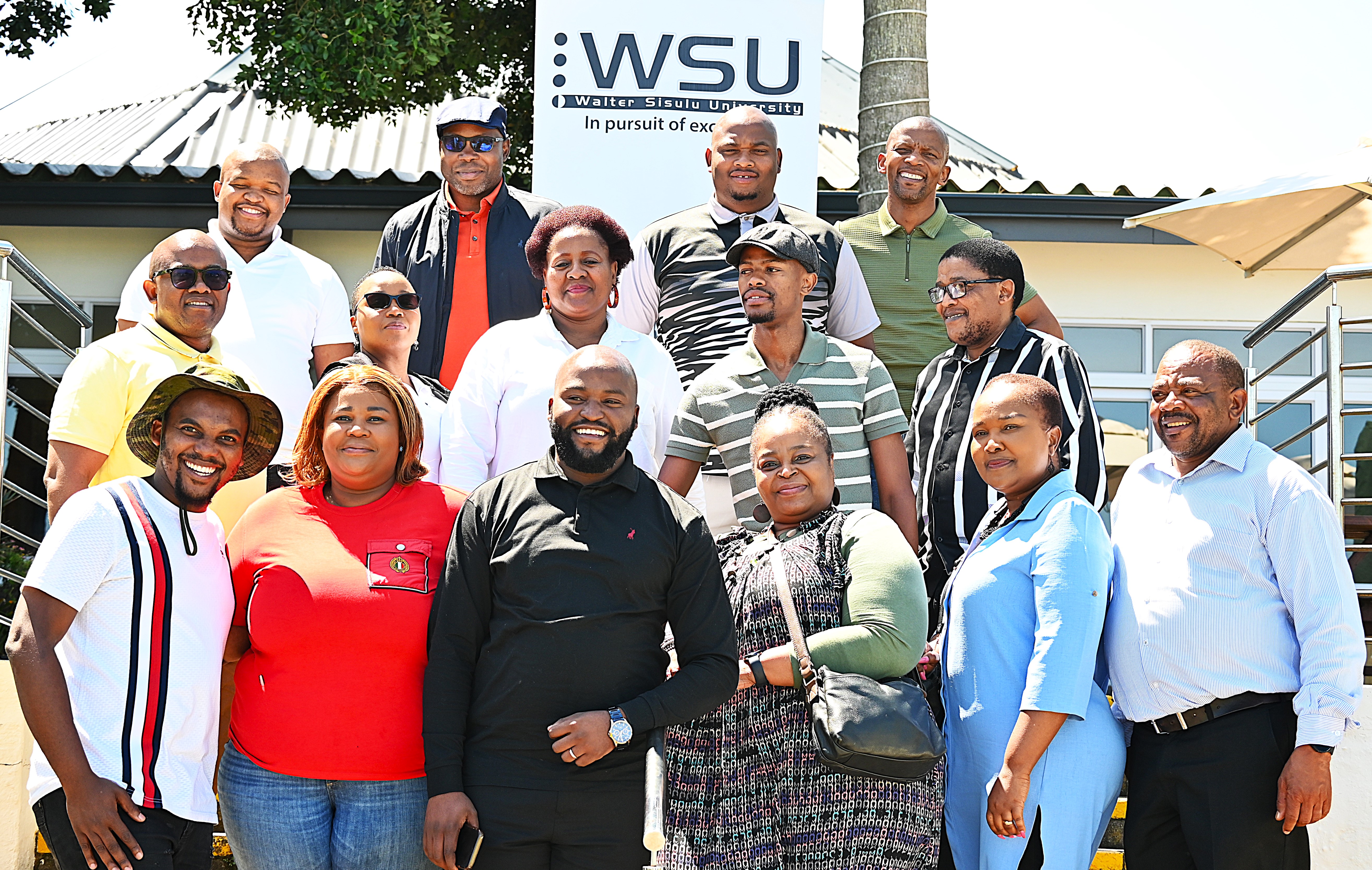INSTITUTIONAL FORUM (IF) SET TO TAKE BOLD STEPS IN ESTABLISHING ITSELF

Considered in many corners to be "inconspicuous" and "problematic," the IF collective met to thrash out and formulate dynamic programmes aimed at changing the aforementioned perceptions through the enactment of policies and interventions that can fundamentally assist the university in transforming for the better.
“The Institutional Forum (IF) for the first time convened and held its first strategic session at Mpekweni resort on the 26th -27th of October 2024. IF members from different university stakeholders gathered together with a shared vision of co- creation, building a life-long leadership infrastructure and adopting a system thinking approach for governance. The Strategic planning session also reflected on how best we can harness differences in ideas and practices, how do we align ourselves with the values of Tata u Walter Sisulu (Xhamela) and institutionalize them to build a transformative change and a liberating institutional culture,” said IF chairperson Sandiso Mbongo.
Though fashioning itself to go beyond the limitations of the statute, as a statutory body, the IF, according to the WSU Statute Gazetted on 4 October 2024, must advise the Council on issues affecting the university, and these include:
- The implementation of the Act and the national policy on higher education;
- Race and gender equity policies;
- The selection of candidates for senior management positions:
- Code of conduct, mediation, and dispute-resolution procedures;
- Fostering an institutional culture that promotes tolerance and respect for fundamental human rights and creates an appropriate environment for teaching, research, and learning.
Over and above the aforementioned statutory duties, the collective, after being split into two groups and tasked with performing a SWOT analysis and subsequently producing ideas to assist the university, collated thoughts steeped in bold ideas such as, amongst others, advocating for a Walter Sisulu Day made up of various activities, establishing of Walter Sisulu mini museums across the university’s four campuses, and introducing Walter Sisulu 101, an academic module offered across all the university’s academic programmes that speaks to the achievements of the struggle stalwart.
“These three ideas, amongst others, are aimed at promoting the life and times of the icon whose name the university bears, and also promoting and instilling amongst the WSU community, the values by which Walter Sisulu lived. These are values we must try and replicate,” said Mbongo.
Key to the engagement at the workshop was also improving the quality of leadership, and Nelson Mandela University DVC for People and Operations, and facilitator of the Institutional Forum (IF) Luthando Jack, shared, for a little bit, the inner workings of his crisp intellect as he addressed some critical aspects of leadership that can help the IF make fundamental strides as a cohort.
Jack highlighted the confluence of differing personalities, professions, and abilities under the banner of IF and how these varying traits can be utilized to create something beautiful, ultimately benefiting the university.
“As a collective, you have the hardware traits of leadership, which are the established committees, policies, etc, but what you need to invest your time on most is the software part of your leadership, which speaks to a structure's ability to connect and maintain meaningful relations with its constituency, and how to ensure lines of communication are maintained to maintain those connections," said Jack.
Addressing the age-old and often contentious issue of transformation, Jack philosophized in distinguishing between transformation in its most literal state, that being, for instance, digital transformation - improving working conditions through technology, and a transformative agenda, which speaks to a tangible and fundamental change in people's lives, which has far greater impact of the human condition.
By Thando Cezula
